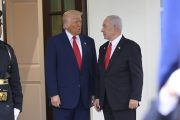
SINGAPORE — South Africa is poised to play host to joint naval military exercises with Russia and China for 10 days in February, the second exercise of its kind since the inaugural joint naval drills off Cape Town in late November 2019, the South African army announced.
Termed “Mosi,” which means “smoke” in the local Tswana language, the second exercise is slated to last for ten days between February 17 and 27 at two locations: off the shores of the coastal city of Durban in the province of KwaZulu-Natal, and off the city of Richards Bay, which is situated 110 miles (180 kilometers) from Durban.
“As a means to strengthen the already flourishing relations between South Africa, Russia and China, a multinational maritime exercise between these three countries … will take place,” the South African National Defense Force declared.
Russian and Chinese naval vessels and warships will join South Africa’s naval maneuvers off the country’s east coast. The names and types of Russian and Chinese ships that will be involved in the Mosi II exercises have not yet been disclosed.
“This year’s Exercise MOSI will see over 350 SANDF (South African National Defense Force) personnel from various Arms of Services and Divisions participating alongside the Russian and Chinese counterparts with an aim of sharing operational skills and knowledge,” the army stated.
This multinational exercise will coincide with South Africa’s Armed Forces Day celebration, which is supposed to happen at uMhlathuze Municipality in Richards Bay.
Russian Foreign Minister Sergey Lavrov lambasted the U.S. Congress for attempting to counter Russian activities in Africa as “an American provocation” that mainly undermines the Africans themselves and showcases the West’s colonial approach to the African countries.
Echoing Lavrov’s remarks was South African Foreign Minister Naledi Pandor, who, in an interview with Sputnik News, asserted that the bill Congress is considering to curtail Russian activities in Africa violates international law and should be withdrawn.
“I assess this law in the same way as Madam Minister (of Foreign Affairs) of South Africa,” Lavrov posited during a press conference. “As for how it can affect our relations with Africa, I think her comments already contain the answer. Probably, not every African country, through the mouth of its representative, can clearly indicate its position.”
Lavrov highlighted that he was sure that even those who did not express their views on such a “U.S. provocation” still harbor a strong conviction that “this law harms Africans first of all.” Claiming that the United States does not regard African nations as its equals, Lavrov elaborated that Washington’s behavior mirrored a “purely colonial mentality in a new dimension.”
The Russian minister also recalled the time when former U.S. Secretary of State Mike Pompeo traveled across the African continent to call on “everyone to stop trading with Russia and China, because both Russia and China do it for self-interest.”
“But America, Pompeo said, trades with you solely so that you develop, and you have more democracy. Such, you know, a simple little thing, it is anywhere, and in Africa too, it is perceived as it deserves,” Lavrov pointed out
In May 2022, the U.S. House of Representatives authorized H.R. 7311 against “malign” Russian activities in Africa that “undermine United States objectives and interests.” The bill called for the application of “punishment” by the U.S. against African countries for working with Russia in various fields.
South African President Cyril Ramaphosa recounted that he complained to the U.S. during a meeting with President Joe Biden about the injustice of penalizing African countries for relations with Russia, disagreeing with the May 2022 bill.
Ramaphosa stated that the bill was a “misplaced type of legislation” and would adversely affect Africa and “marginalize” the continent. “We should not be told by anyone who we associate with, and we should never be put in positions where we have to choose who our friends are,” he told reporters after his meeting with Biden.
Jacob Mudenda, speaker of the National Assembly of Zimbabwe, said that African countries were disgusted with the American effort to curtail the activities of the Russian Federation in Africa, since it is an encroachment on the sovereignty and territorial integrity of states maintaining ties with Russia.
In February 2022, Russia kicked off what it termed its “special military operation” in Ukraine on the grounds of safeguarding the people of Donbass from alleged Ukrainian aggression. In response, Western countries poured military and financial aid into Kyiv and enforced various sanctions against Moscow. Such sanctions heavily affected global supply chains.
The West’s attempts to create divisions between India and China are conspicuous enough, Lavrov asserted.
The creation of the AUKUS pact between Australia, the U.K. and the U.S., with the incidental humiliation of France, and the policy of enlarging blocs, including those with Japan, New Zealand, and Korea, undercut those structures that have influenced security dynamics in Asia for decades, primarily ASEAN (the Association of Southeast Asian Nations), Lavrov added. He noted as well that Beijing and Moscow have both pragmatic and friendly relations, having considerably boosted their trade and cooperation in various spheres.
Lavrov emphasized that as the U.S. considers China’s rise “a challenge” to its dominance, it is trying to contain both Russia and China, and said that in addition to driving a wedge between Moscow and Beijing, Washington is pressuring other Western countries to isolate them.
The Russian minister insisted that such tactics were “completely divorced from reality.”




